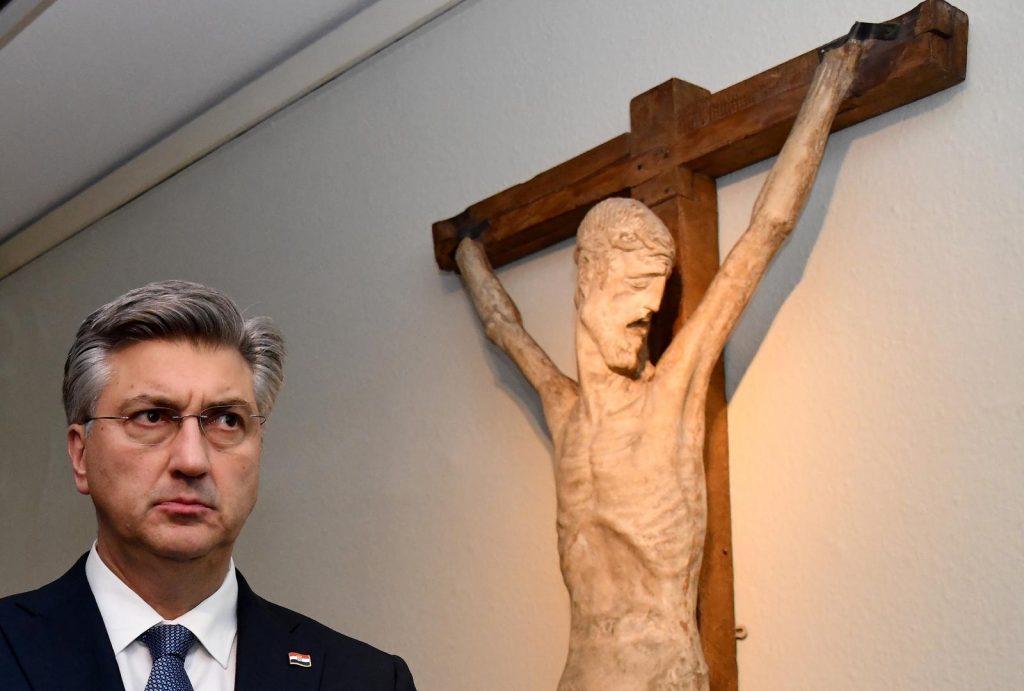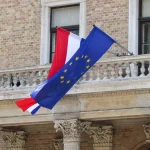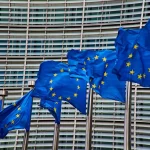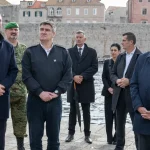November the 24th, 2023 – This week in Croatian politics, there’s been tension at the EU level, a new consulate opened, and Ivica Todorić now wants to become Bosnia and Herzegovina’s prime minister.
The arrival of a Bangladeshi consulate in Zagreb

Croatia has seen an enormous influx of workers from distant countries over the last several years. The change in the demographic of large parts of the country, particularly in cities, has become obvious. With more and more people having arrived to work here from Bangladesh, it was high time that a Bangladeshi consulate opened its doors – and where better than in Zagreb?
On top of that, current predictions allege that by the year 2035, Bangladesh will become a trillion dollar economy. Its “Asian Tiger” economy is classified as the fastest growing in all of South Asia.
Once a country stricken by poverty, Bangladesh is now associated with textiles and agriculture, huge exports, and more recently – power and progress. It’s all been very gradual, but it’s extremely visible. This country, which has a GDP amounting to almost 453 billion dollars, and which boasts an economy that has been growing by an average of 6% annually over the last decade, opened the Zagreb Bangladeshi Consulate recently.
The first consul of the Zagreb Bangladeshi Consulate is Nenad Črnac, a 47-year-old businessman from Rijeka. During his visits to the capital of that country of 170 million people, he became convinced that Bangladesh has the potential to become a partner country for Croatia with its economy, finished products and various types of services. All of that comes with the possibility of increasing the scope and variety of jobs. Getting Croatian politics to pay attention to Bangladeshi potential is the key to closer cooperation.
You can read more by clicking here.
Croatian inflation rates continue to drop – but are government economic measures to thank?

The inflation rate in Croatia in October was 5.8 percent, the lowest it has been ever since January 2022.
Compared to September, prices rose by half a percent. On a monthly basis, the highest increase in prices was recorded in the categories of clothing and footwear (11 percent) and communication (2.7 percent). Transportation prices decreased by 0.6 (percent), and food and beverages by half a percent. It might not be much, but it is something.
When observed according to the main groups of the ECOICOP classification, writes SiB, all categories increased on an annual basis, and the highest increase in consumer prices was achieved on average in the category of restaurants and hotels, of 12.1 percent. The categories of food and non-alcoholic beverages followed with 8.7 percent, recreation and culture with 6.7 percent, while the categories of clothing and footwear and various goods and services recorded a jump of 6.6 percent each.
The Croatian Government has continuously been introducing and tweaking its economic packages in order to curb inflationary pressures on both enterprises and the general public. Having gained invaluable experience in introducing measures back during the coronavirus pandemic, individuals in Croatian politics have constantly boasted about the effect their price-mitigating measures have had on the overall domestic economy.
You can read more on the dropping inflation rate by clicking here.
Former Agrokor boss Ivica Todorić says he’d love to be Bosnia and Herzegovina’s prime minister
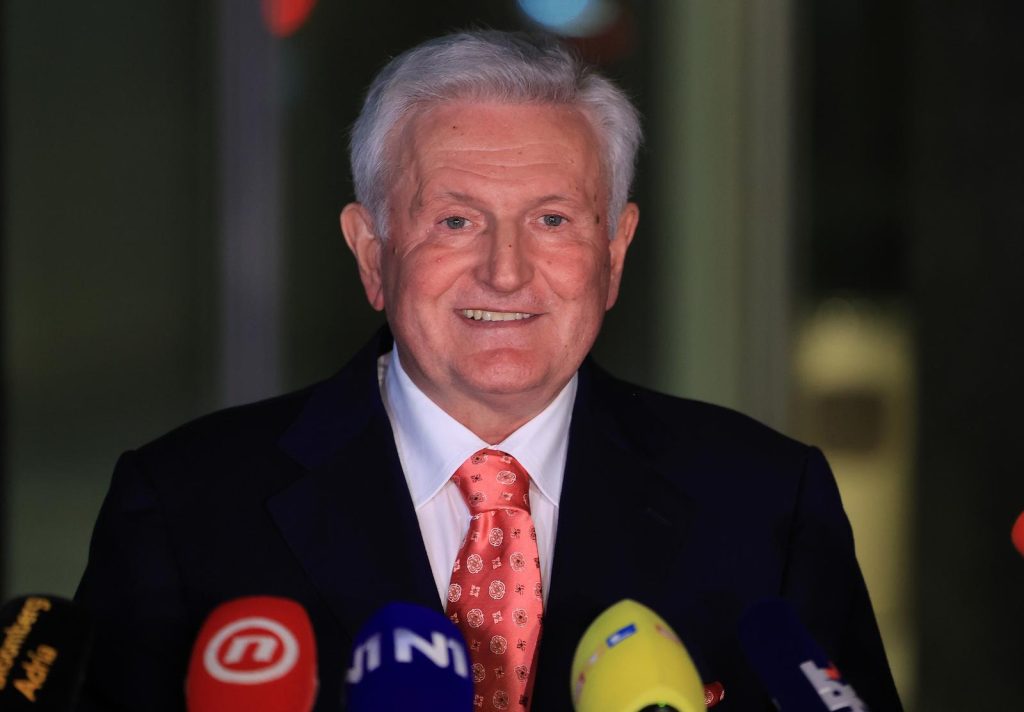
Ivica Todorić has gone from the glossy pages of Forbes for being among Croatia’s richest to the realms of relative obscurity since 2017’s Agrokor collapse. As Index vijesti/news reports, he has now stated that he’d love to become the prime minister of neighbouring Bosnia and Herzegovina after being interviewed on TV.
Agrokor’s former main man Ivica Todorić was interviewed for the Mreža/Network programme in Bosnia and Herzegovina recently, where he claimed that Prime Minister Andrej Plenković wants to take Agrokor and hand it over to the Russians on the orders of Brussels. No stranger to rather strange claims, Todorić also said that the attacks on him and on his former company went in two directions.
“Suddenly they just came out and said: “Ivica Todorić is a criminal and a thief”, and then on the other hand, they kept saying that Agrokor was in trouble. I found out later that Agrokor was being actively attacked by the government. Then, the former Deputy Prime Minister Martina Dalić came to my office and said to me: “You need to transfer your assets free of charge into one bureau with one notary. Get out of the company.” I know that the prime minister is behind all of this,” Todorić told Federalna Televizija/Federal Television.
Todorić emphasised that, as he says, he was the biggest businessman in Europe from Poland to Greece and that he had huge funds at his disposal, and as such – he created huge value.
“I have five million euros from all of what that once was. In order for them to succeed and to have evidence to justify their actions, they accused me of all sorts, they thought that they would find who knows what. What? Like some two billion tucked away on some remote islands? They said all sorts of things about me, but in fact they found nothing. I was a specific entrepreneur, I invested in the region, I only gave, I didn’t withdraw from the company. I’m proud of what we did with Agrokor, we created truly competitive companies”, said Todorić.
Todorić also referred to the expectations of the arbitration procedure currently going on across the pond in Washington. “My case has been put on the table in front of some of the most competent people in the world today. It’s difficult to say what kind of decision they will make. I’ve been working on this case for seven years now. I’m certain that I’m going to win it,” said the former owner of Agrokor, taking aim at Croatian politics once again.
At the end of the conversation, Ivica Todorić said that he will defeat Plenković, HDZ and all those in Croatian politics he feels have wronged him. He added that he is more popular than any of the aforementioned people in Croatian politics.
“What’s happening today, inter-ethnic conflicts, it’s a huge shame, I’m deeply convinced that Bosnia and Herzegovina has enormous chances for further development. I’ll go out to everyone – the prime minister, the president – and sit down with them. I’ll try to open their eyes as much as possible to what’s going on. I’d very much like to be the Prime Minister of Bosnia and Herzegovina,” he concluded.
The finance minister was at a football match while Parliament debated the state budget
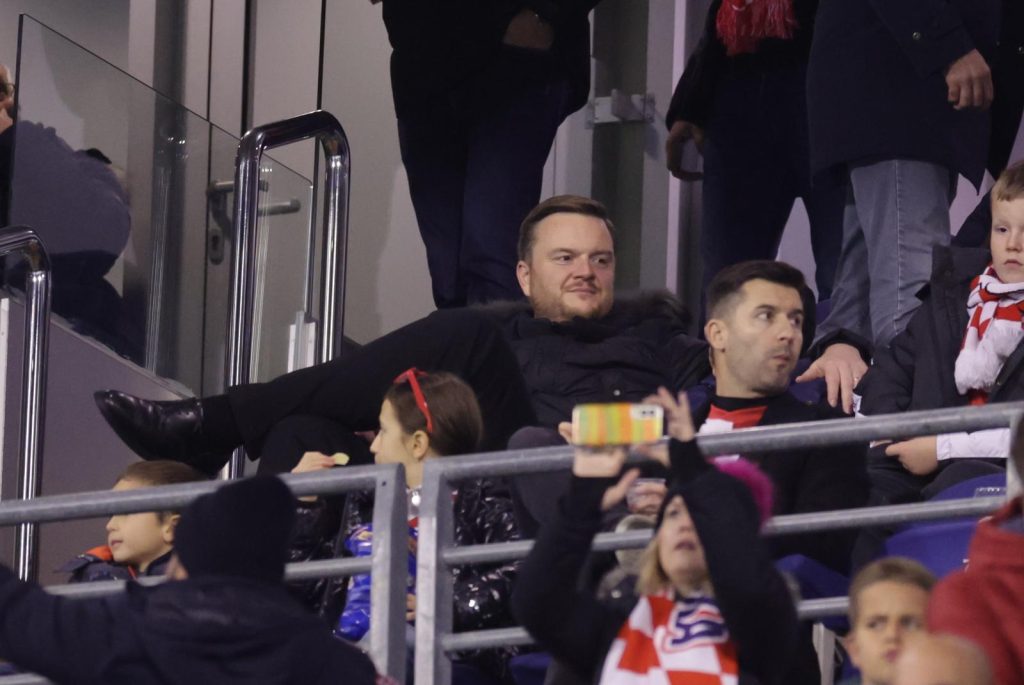
As Index vijesti/news writes, as the debate on the proposed state budget for next year took place in Croatian Parliament, Finance Minister Marko Primorac spent the evening watching a football match at Maksimir Stadium, where Croatia and Armenia went head to head in a key match.
Other key figures in Croatian politics were also at the match, including Parliament Speaker Gordan Jandroković, Justice Minister Ivan Malenica and President Zoran Milanović.
Earlier on, however, Minister Marko Primorac was present in parliament, where he exclaimed that with the proposed budget being as it currently stands, expenses for employees will increase by 1.5 billion euros, and for pensions – there’ll be a 1.1 billion euro increase. The government projected the total income of the state in the next year to reach 28.5 billion euros, and expenditures will reach 32.6 billion, he stated.
As expected, the parliamentary opposition quickly lashed out at the government’s proposal for the state budget, which Prime Minister Andrej Plenković is defending. The opposition, among other things, claimed that the budget is a mere pre-election lure and that it is unrealistic. It also claimed that government spending is growing significantly, but that this isn’t actually being accompanied by any sort of increase in salaries and pensions. HDZ vehemently rejected all such accusations made by their staunch opponents in the argumentative world of Croatian politics.
Prime Minister Andrej Plenković said that the priorities of the state budget for next year, the eighth proposed by his government, are the protection of the most vulnerable among us, ensuring the stability of public finances and continued investment in the further development of Croatia.
Split’s deputy mayor Bojan Ivošević reported Plenković for insulting Milanović
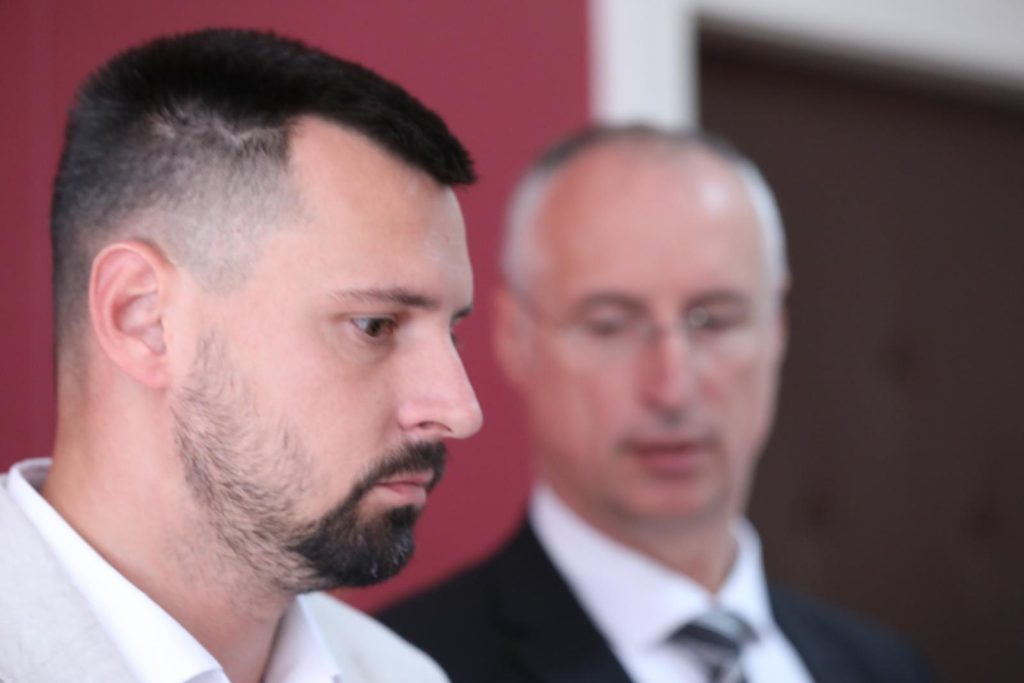
No, these aren’t schoolboys in the playground – these are (at least two out of three, anyway) the leading men in Croatian politics. Plenković and Milanović, the prime minister and the president, are constantly at each other’s throats. Arguing, trolling, insulting and criticising – the battle between the two is now as old as time if you’re going by the Croatian political clock. Split’s deputy mayor, however, saw fit to report the prime minister to the police for insulting the president.
As Index vijesti/news writes, Split Deputy Mayor Bojan Ivošević filed a misdemeanor complaint with the Split police department against Prime Minister Andrej Plenković for insulting and belittling state bodies, namely President Zoran Milanović.
This report has another element to it, as the same police force recently sanctioned Ivošević for committing the very same offence. Ivošević received a fine of 700 euros because he told police officers that they were “small people” and that they were “not normal”. The incident happened while Ivošević was trying to prevent the illegal felling of a tree in Glagoljaška Street in Split back at the beginning of this month.
Ivošević published the misdemeanor complaint he made against Andrej Plenković on Facebook.
“I believe that the chief will act in the same way as he has done in similar cases. After the Split police department activated Article 17 of the ZPJRM to the lowest possible level, as a conscientious citizen, I decided to see if they’ equally zealous when other state authorities are being insulted and belittled. I filed a misdemeanor complaint against the Prime Minister of the Republic of Croatia, Andrej Plenković, at the police station for recently insulting and belittling the President of the Republic of Croatia, Zoran Milanović.
I believe that Ante Balov will act in the same way as he has done previously in other similar cases, and issue a misdemeanor order against the Prime Minister of the Republic of Croatia for referring to the statements made by the President of the Republic of Croatia as being moronic,” Ivošević stated on social media.
Earlier, Ivošević accused that same Split police department of open intolerance “towards the City of Split, which, by insisting on compliance with Croatian law, disrupted the flow of money into certain structures, including to some police officers.”
As Germany seeks radical EU reform, Croatia sides against the idea
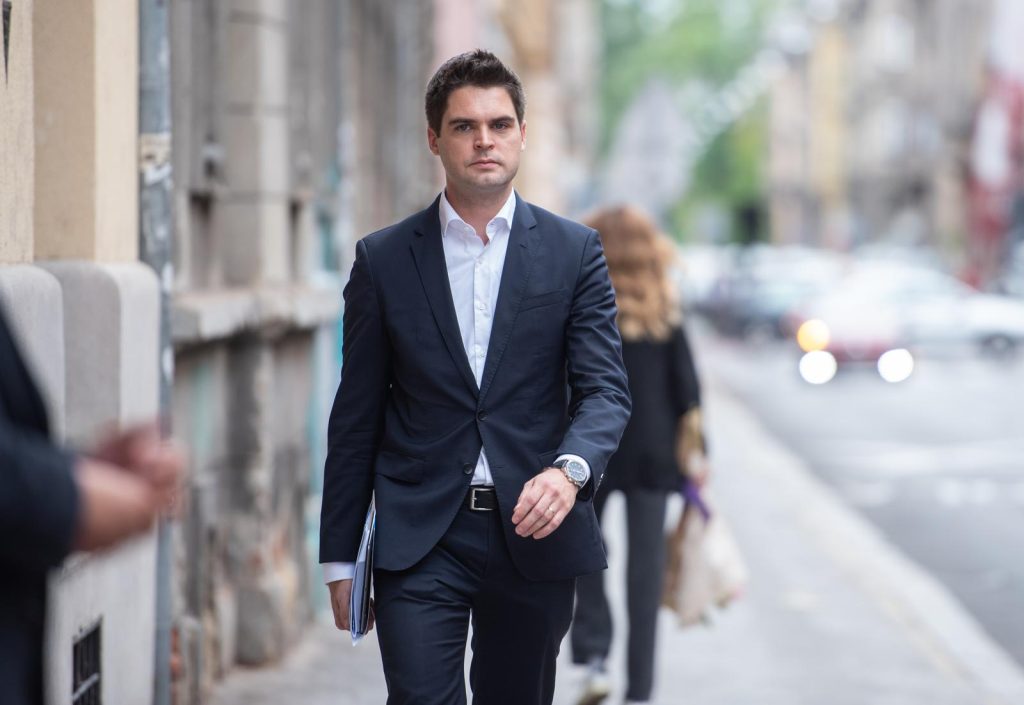
As Index vijesti/news writes, there can be absolutely no enlargement of the European Union without the abolition of unanimity in decision-making, according to the authors of the European Parliament report that was adopted recently.
Five Liberal, People’s, Socialist, Green and Left representatives, four Germans and a Dutchman are the authors of the report that proposes changes to the EU’s endless ream of treaties. Among other things, they want to abolish unanimity in decision-making, strengthen the legislative powers of the European Parliament and establish an energy and defence union. The report was accepted with 291 votes “for” and 274 “against”.
“Since the Treaty of Lisbon was introduced, the world has changed dramatically,” Liberal Guy Verhofstadt said a day earlier in the debate on the report at the plenary session in Strasbourg, warning that the EU as it currently is is not ready for a more “brutal world”, nor is it prepared for enlargement. “We react too little or too late because we’re paralysed by unanimity in decision-making,” said the former Belgian prime minister, who claimed veto power and blackmail have unfortunately become “standard practice in the EU.”
The European Council decides unanimously, and the Council of the European Union uses this principle when making decisions on a number of “sensitive” issues such as foreign and security policy, finances, part of the provisions in justice and internal affairs, EU membership and other items.
Within the EU itself, there are ongoing discussions about whether unanimity should be replaced by a qualified majority in order to speed up the alliance’s decision-making processes, but this is being opposed by a number of countries – including Croatia. In a rare show of unity, it is currently opposed by both Prime Minister Andrej Plenković and President Zoran Milanović.
Verhofstadt and his colleagues propose the creation of an “enhanced” qualified majority in which decisions would be made by two-thirds of members representing more than 50 percent of the population. Liberal claims that this would “dramatically improve” the status of “smaller or medium-sized EU nations”. He emphasised that this “doesn’t create a European superstate” and said that without this reform “the EU simply cannot expand”.
Sven Simon from the European People’s Party said that the issue at hand isn’t a choice between federalism and nation states, but a way for the EU to become more focused and able to act.
“We must achieve a defence union in order to be able to defend ourselves properly, which is just not the case today,” said Simon, stressing the need for energy cooperation. The EU must protect its borders, which is impossible without coming to an agreement on migration policy that is constantly being blocked by vetoes. “We also need a European Commission that was elected and can as such be voted out of power,” believes Simon.
He told “concerned colleagues” that this is “the first step on a very long road”, because any reform needs the approval of all EU Member States.
Socialist Gabriele Bischoff said that reforms and enlargement are “two sides of the same coin” and that one cannot exist without the other. “That’s why it’s important that we understand the implications of that. There can’t be 35 members who can veto, we have to be more efficient than this,” said the German.
Greens representative Daniel Freund cited Hungarian Prime Minister Viktor Orbán as an example of “one person because of whom the entire European Union is blocked.” “It isn’t only an undemocratic problem, but also a security problem,” he said.
The commissioner of the Commission for inter-institutional relations and administration, Maroš Šefčovič, said in the discussion that recent global crises have highlighted the limitations of the current legal framework. “The next big priority before us is enlargement. This can be a catalyst for change. While expanding our Union, we can also deepen it all,” he concluded.
As always with Croatian politics – things aren’t simple when it comes this issue, either. Croatian MPs were divided in their vote for that document. Željana Zovko, Karlo Ressler, Tomislav Sokol and Sunčana Glavak opposed it, as well as conservative Ladislav Ilčić and independents Ivan Vilibor Sinčić and Mislav Kolakušić, while socialists and democrats Biljana Borzan, Predrag Matić and Tonino Picula and liberal Valter Flego supported it.
The EPP members believe that these changes would weaken the institutional position of smaller countries, without at the same time improving the EU’s readiness to deal with key challenges.
“That’s why it’s incomprehensible that any Croatian representative can support such centralist tendencies. It’s scandalous to put one’s own ideological affiliation before Croatia’s obvious national and strategic interests in one of the key mandate votes,” the group of which Karlo Ressler is a representative, believe.
Karlo Ressler said that he believes that unanimity “doesn’t actually create so many problems” within the European Union. He cited the example of eleven packages of sanctions against Russia which were introduced despite the right of veto. It’s precisely unanimity that is “important for the cohesion” of the European Union because it gives legitimacy to every decision, because every country stands behind the final decision that is negotiated and national interests are taken into account.
Of others having a say from Croatian politics, Liberal MP Valter Flego, who supported the report, pointed out that he did it “because of the simpler functioning of the EU” and that such an alliance would be a world leader.
“The current decision-making process doesn’t allow for this. Today’s decision isn’t being made at the expense of small countries. Instead, it’s a guarantee of future decision-making efficiency,” said Flego, noting that Croatia is currently in the pre-election period, “which can be seen from the manipulation and distortion of the truth by by the EPP”.
“Let’s remember Croatia, which was blackmailed and blocked on its EU path by Slovenia. Today, Macedonia is experiencing that very same fate. Today, we have a historic opportunity to change that and vote for the proposal that introduces ‘safeguards’, that is, that one country will no longer be able to block things like that. Do you know who today is the saddest day for? For Mr. Orban and Robert Fico,” said the representative from Istria.
Sokol then recalled the statement of President Zoran Milanović from back in October of this year, in which he said that anyone who raised their hand in favour of that proposal would be “committing an act of high treason”.
The most problematic proposal for him was the abolition of the veto in foreign and tax policy, as well as the initiative to reduce the number of commissioners, which would mean that not every country has its own representative. Sokol also believes that these proposals would only strengthen divisions and Euroscepticism, not only among those in Croatian politice but on a wider scale. He added that the question arises as to how the nations that were outvoted would then implement the decisions they opposed. He called the decision of some deputies to support the report “scandalous”, pointing out that it is “absolutely against Croatian national interests”.

